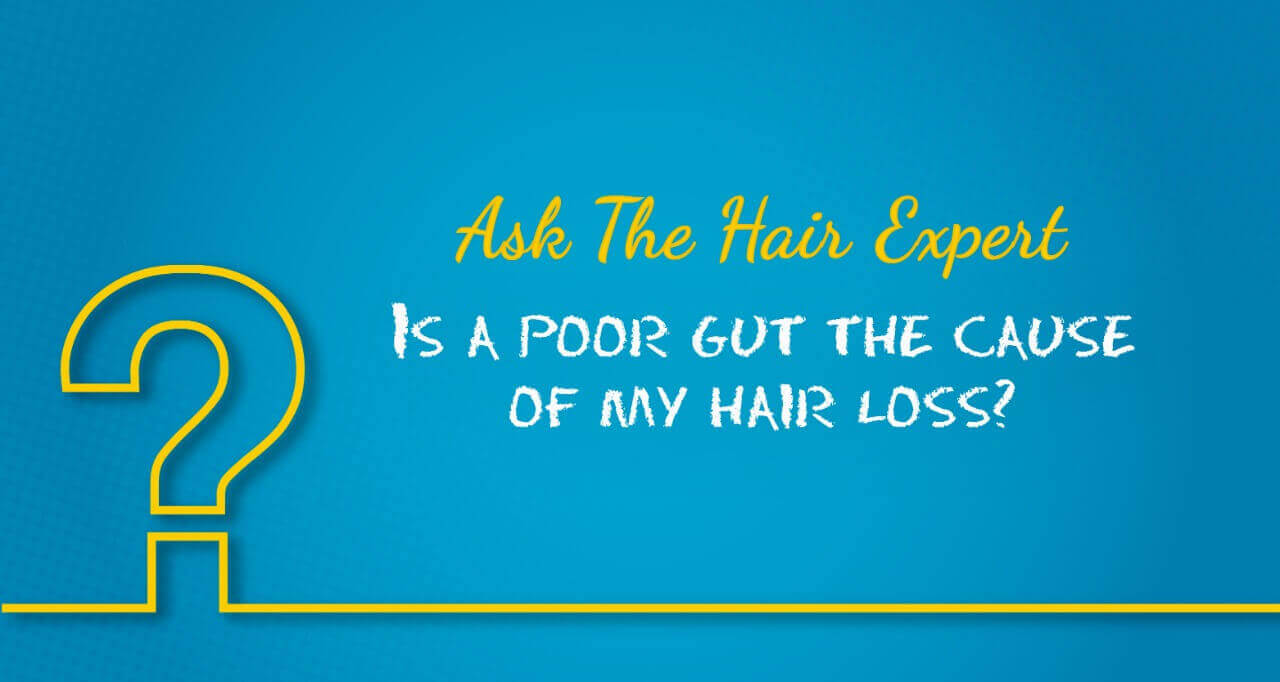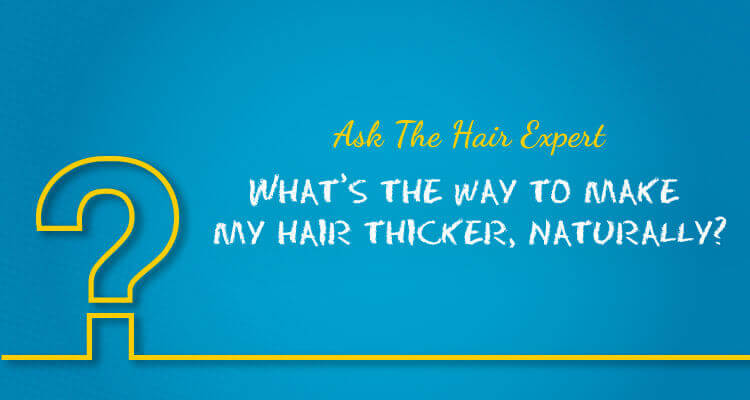Women and their hair, have a love-hate relationship… all through their life!
We choose to wear it the way we want, we style it, we colour it, we adorn it with jewels even… Hair is an extension of one’s personality and image, for all and especially so for women.
The dynamics of this relationship though undergoes its ups and downs. Every hormonal milestone that a female passes through in her lifetime, has an effect on her hair. Sometimes a positive effect, but mostly it is in the form of a concern! So suddenly, a woman loses hair, or feels less in control of it, it affects her self-esteem and she ends up feeling less feminine perhaps?
Today, we will speak about one such concern-causing milestone – Menopause. A milestone that awaits every female as she ages, and comes with its own set of challenges. For some, when they are 45, for some when they are 55… the process, however, is inevitable. There are various physical and emotional symptoms that announce the milestone – menopausal hair loss being one of them.
Let’s delve deeper into the topic.
What is Menopause?
Simply put, Menopause refers to the natural decline in reproductive hormones in a woman as she ages. As a woman ages, her ovaries age and they produce less reproductive hormones. The lowering levels of estrogen, progesterone, testosterone, follicle-stimulating hormone (FSH) and luteinizing hormone (LH) in the body gives rise to various changes.
Typically, this occurs when a woman reaches her 40s or 50s. When this happens, there is no menstruation for say 12 consecutive months and she can no longer become pregnant naturally. While it usually begins between the ages of 45 and 55, it can develop before or after this age range as well in some.
Menopause is known for causing rather uncomfortable symptoms, such as hot flashes, weight gain and hair thinning. For most women, menopause doesn’t need any medical attention, though supportive care may be needed.
The entire process can be looked at through three stages – Perimenopause vs. menopause vs. postmenopause. During the perimenopause, the menstrual periods become very irregular. While some observe late periods, some completely skip one or more periods. Menstrual flow becomes heavier in some and lighter for some others. There is no one standard that all women can predict.
While Menopause refers to the lack of menstruation for one full year, Postmenopause refers to the years that follow the menopause.
Now, a woman’s hair is linked much to these phases. As described above, as you go through menopause, there are changes in hormonal levels. It is thus that your hair faces some impact during this phase.
What’s the link between Hair & Menopause?
For those familiar with our blogs, you would have read about the Hair’s growth cycle. If you aren’t familiar with it, do catch up on our blogs on hair life cycle and anatomy.
Hormones play a significant role in one’s hair-journey. Menopause involves hormonal changes and these changes affect the hair growth cycle and hair’s overall quality. The changing hormone levels around this phase in a woman’s life accelerates these changes in her hair.
Just as higher levels of female hormones, during times such as pregnancy, leads to fuller, healthier, longer hair, the declining hormonal levels during menopause has an opposite effect in most. Further, when there is such a decline in female hormones, the effects of the male hormones (androgens) increases, causing deterioration in hair follicles.
Menopause causes the oestrogen levels in the body to decrease and leads to significantly higher levels of testosterone. Now this particular hormone, oestrogen, is generally very hair-friendly, helping keep your hair in its anagen (growth) phase for a longer duration. The higher levels of testosterone negatively affect the hair follicles.
If a woman is already genetically predisposed to such deterioration, then these follicles progressively produce hair that is weaker, prone to breakage or fall. Eventually, they stop producing any hair. So if you are ‘androgen-sensitive’ by nature, you are prone to experience hair loss from testosterone effects, during the menopause period.
In general, if you are going through menopause, you will hence notice that your hair is gradually losing volume and length. Hair thinning and breakage is also very common. This is mainly because the new hairs that your follicles are trying to produce have become gradually thinner and finer. And finer hair is naturally more fragile, prone to breakage.
Women whose hair follicles are by nature sensitive to DHT (dihydrotestosterone), such hair thinning during menopause will be more pronounced and very very tangible. Apart from this, there may be other contributing factors such as unusual levels of stress, other hormonal imbalances like thyroid disorder, nutritional deficiencies, the impact from crash diets, irregularities caused by hectic lifestyles, acute illnesses, effect of certain medications and surgical history, if any. These are, as mentioned above, only contributing factors, and not the main triggers by themselves for menopausal hair loss.
A detailed study of the medical history, running certain diagnostic tests and examination, help evaluate the hair and scalp condition clinically, accurately identifying the exact risk factors, and thereby decide how to tackle them best.
Is this hair loss different from Female Pattern Thinning (FPT)?
Androgenic alopecia or FPT is seen in many after menopause leading to say that hormones are a contributing factor. But they aren’t the only cause. Genetics is still believed to be the key contributor to FPT. Further, in case of FPT the thinning is mostly visible at the crown of the head, or with noticeable thinning on top of the scalp.
In the case of menopausal hair loss, it’s typically diffuse in nature and involves the whole scalp. There is an overall thinning of hair and women feel a decrease in volume at large.
So how do you spot such menopausal effect on your hair? What should you watch out for?
Hair thinning is almost always gradual. While 50 is the average menopause age, symptoms start showing up as early as four years ahead of the actual menopause, i.e. during the perimenopausal period itself.
Some of the common symptoms to watch out for, once you cross say a 45 mark, are as below. These are perhaps the most relatable!
- Your menstrual cycle is irregular
- Losing hair across your scalp or sometimes in an unusual pattern
- You are developing unusual facial hair
- Your hair volume is way lesser (thickness as you bunch your hair in your hand like a ponytail)
- Your hair seems visibly thinner
- Length of hair strands seems shorter
- Your hair isn’t growing as it normally does
- Your parting is looking wider, revealing more scalp skin
- A notice a recession of the hairline near the temples
- You notice lesser density at your frontal hairline
- Poor hair texture
- Hair seems dry and lanky
- Hair is breaking off the shaft
- Visible hair fall on a daily basis
What can you do about it?
The common mistake that most women make is missing out on spotting these symptoms. Most attribute it to ‘it happens’. Some simply aren’t aware that this is something that can be managed; that the intensity of the damage can be curtailed.
Take hair fall seriously. If you follow our pages, you would have read about how the hair cells are some of the fastest-growing cells in our body. The growth cycle is only affected when your body is under physical or emotional stress, or perhaps a crisis. Menopause creates such stress on the growth cycle, as detailed in the earlier section. It leads to the weakening of the hair follicles to the extent that it can altogether stop producing hair if left unattended.
You NEED to attend to your hair when you are entering the menopause phase, paying it more attention than ever before. If you are not giving it the TLC it needs and not tracking the changes, you are likely to make this temporary situation a long-lasting one.
Is menopausal hair loss treatable?
Yes. Very much so. A trichologist can help you understand this situation clinically, and help you curtail the damage.
Hair restoration techniques have advanced much over the past decade, giving rise to a plethora of options. From topical treatments, to plant stem cell-based advanced hair regenerating treatments, nutritional supplements especially for your hair under these circumstances, trichology offers solutions that are non-invasive, non-restrictive on your routines.
Taking into account your medical case history, diet, lifestyle and daily demands, a holistic approach is to be taken on this, to attack the concern in a 360*.
Here are some checks you can keep in mind…
- Mind your diet and water intake – Diet is key during your menopause. As you deal with the changes, a balanced diet and sufficient water intake will help your body cope better with the changes. Typically B-Vitamins, Zinc, Omega-3 fatty acids are needed in more quantities during this phase. As a practice though, ensure that you consume a nutritive diet that includes Hair Foods like greens, nuts, milk products, ample fruits that would help push the hair in the growth phase and give good nutrition to your hair. Further, drinking 2-3 litres of water a day will provide the most important minerals for hair strength. Your doctor will be the right person to guide you on this.
- Exercise! – Move more! Select a form of exercise that you enjoy and are able to easily rope into your day. It could be brisk walking, jogging, swimming, yoga, zumba – it’s your choice. Just run it by your doctor once to ensure that it’s ok! Regular exercise in your routine can help decrease your chances of aggravating contributing factors such as high cholesterol, diabetes etc. It improves blood circulation, muscle tone, strengthens your core and helps you manage weight better. Exercise is also known to help improve concerns associated with the perimenopause phase such as bloating, stress, mood swings, sleep irregularities etc.
- Reduce stress, Sleep more – Take up activities that help you stay de-stressed. Be it listening to music, meditating, dancing or exercising, it doesn’t matter as long as it helps you keep your sanity! Stress can lead to unwanted health complications, regardless of your age. Now, especially while conversing on menopause, stress is a huge contributing factor to menopausal hair loss. Lower oestrogen levels trigger a lot of issues such as mood swings, hot flushes, anxiety and depression. Ensure you de-stress by doing one focussed activity every single day. This will also help you sleep better. The regularity of sleep is also a very significant factor here. And while at it, we recommend silk pillowcases for your hair!
- Get prescribed a hair care routine – Oil, wash and condition your hair regularly. Use hair products that are prescribed to your needs, rather than picking random stuff off-the-shelf in the market. A disciplined hair care routine, using the right products, can help you sort half your hair concerns! Do read our hair care blogs for more on this.
- Mind your hair – be gentle! – Do treat your hair gently. Don’t stress it with chemical treatments, heat styling equipment and other hazardous habits/ hair trends. Avoid plastic combs – use wooden ones. And never comb your hair when it’s wet. Use your fingers to detangle before you get to your comb. Do avoid hairstyles that put a strain on the hair follicles that are already in a fragile state.
- Tricho treatments to stimulate the hair follicles – As mentioned above, there are very advanced treatments, such as plant stem cell-based tricho treatments, that help stimulate the hair follicles in a non-invasive manner. These are curative in nature, help fight hair thinning, stimulate the hair growth at the root, and help restore hair regeneration. It works on prolonging the life cycle of hair and fully restores the vitality of the hair. You can term them as an anti-ageing treatment for hair!
- Avoid self-medication – When your body and hair are in a fragile stage, self-medication is the last thing you should be doing. Any medication or supplement that you take should be prescribed by a medical professional. Talk to your General Practitioner / Gynaecologist for your queries on menopause and how best to take care of your body. Go for a periodical review with a Trichologist for your hair’s health.
And with time, you will see the menopausal hair loss slow down.
It is important to keep in mind that the rate of hair loss may vary from one person to another. And no one solution may fit you and your friend. As we discussed above, underlying systemic reasons like thyroid problems, PCOD, fibroids etc are known to worsen the situation.
It is hence important to get professional help.
While we have theoretically listed out some of the signs that may be visible to you, there are still some concerns like hair thinning that may not be tangible to you until it’s reached a certain threshold. This would need a professional to analyse the condition deeply, take cognizance of your medical history, and help you with a clear diagnosis. There are various means to this process such as capilloscopy, trichogram, FCT, etc. Treatments, diet-changes and supplements are then suggested to solve the concerns in a customised manner.
Here’s our takeaway for the women heading towards menopause.
Like the umpteen challenges you have overcome in your life, tackle menopause with the same courage and grit. Do not let it pull you down! Thanks to the times we live in, you DO NOT have to endure the hair loss and related concerns it brings with it.
Menopause DOES NOT mean that you are going to bald, contrary to many who believe it to be so and ask us about it! Intervention at the right time, in the right manner, under the right guidance, can make all the difference. Do read our blog on women & hair loss for more clarity.
While we are doing our best to keep you aware and ahead with the right information, we urge you -Never hesitate to reach out for professional help. Put your hair & health in front of your other zillion demands!
And remember, we are just a call away!
Do follow our blogs on hair loss, hair care, laser hair reduction, treatments and solutions and such other interesting hair trivia!
Connect with us on social media on the links below. Do leave your questions & comments and we will address them all.



